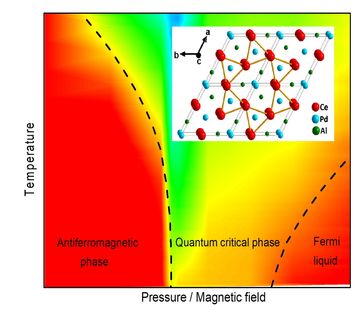Nuclear waste could be reduced by 90 percent
The researchers, from the University of Sheffield's Faculty of Engineering, have shown that mixing plutonium-contaminated waste with blast furnace slag and turning it into glass reduces its volume by 85-95 per cent. It also effectively locks in the radioactive plutonium, creating a stable end product.
The approach could also be applicable to treating large volume mixed wastes generated during the eventual clean-up of the damaged Fukushima plant.
"The overall volume of plutonium contaminated wastes from operations and decommissioning in the UK could be upwards of 31,000 m3, enough to fill the clock tower of Big Ben seven times over," says lead researcher, Professor Neil Hyatt. "Our process would reduce this waste volume to fit neatly within the confines of just one Big Ben tower."
The current treatment method for non-compactable plutonium contaminated wastes involves cement encapsulation, a process which typically increases the overall volume. Hyatt says, "If we can reduce the volume of waste that eventually needs to be stored and buried underground, we can reduce the costs considerably. At the same time, our process can stabilise the plutonium in a more corrosion resistant material, so this should improve the safety case and public acceptability of geological disposal."
Although the ultimate aim for higher activity wastes is geological disposal, no disposal sites have yet been agreed in the UK.
Plutonium contaminated waste is a special type of higher activity waste, associated with plutonium production, and includes filters, used personal protective equipment (PPE) and decommissioning waste such as metals and masonry.
Using cerium as a substitute for plutonium, the Sheffield team mixed representative plutonium contaminated wastes with blast furnace slag, a commonly available by-product from steel production, and heated them to turn the material into glass, a process known as vitrification.
A key element of the research, funded by Sellafield Ltd and the Engineering and Physical Sciences Research Council (EPSRC), was to show that a single process and additive could be used to treat the expected variation of wastes produced, to ensure the technique would be cost effective.
"Cerium is known to behave in similar ways to plutonium so provides a good, but safe, way to develop techniques like this," explains Professor Hyatt. "Our method produces a robust and stable final product, because the thermal treatment destroys all plastics and organic material. This is an advantage because it is difficult to predict with certainty how the degradation of plastic and organic materials affects the movement of plutonium underground."
Professor Hyatt is now working on optimising the vitrification process to support full scale demonstration and plans future investigation of small scale plutonium experiments.
Most read news
Topics
Organizations
Other news from the department science
These products might interest you
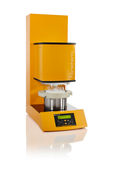
FIBRETHERM by C. Gerhardt
Automatic Fibre Extraction for Feed Analysis
FIBRETHERM from C. Gerhardt: Efficient – Precise – Method-Compliant
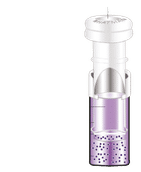
Mini-UniPrep™ by Cytiva
Improved HPLC Sample Preparation
Save 66 % sample preparation time and reduce costs by 40 %

Glass and quartz microfiber filter by Cytiva
Request a glass microfiber sample pack to meet your battery development needs
Delivering efficient and consistent results

GF/C and 934-AH RTU (Environmental) by Cytiva
Meet wastewater regulations with the right filter
Streamline lab operations and ensure high-quality results
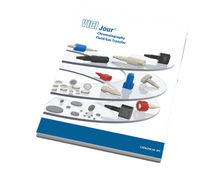
VICI Jour Katalog 15INT by VICI
The VICI Jour Catalog - Accessories for (U)HPLC and Liquid Handling
Capillaries, Tubing, Fittings, Filters, Safety-Products, Tools and much more
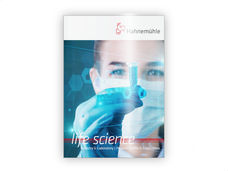
Hahnemühle LifeScience Catalogue Industry & Laboratory by Hahnemühle
Wide variety of Filter Papers for all Laboratory and Industrial Applications
Filtration Solutions in the Life Sciences, Chemical and Pharmaceutical Sectors
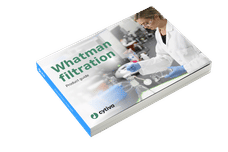
Whatman filtration product guide by Cytiva
New filtration catalog - a wealth of information on 286 pages
Discover the perfect filters for your laboratory application

Get the chemical industry in your inbox
By submitting this form you agree that LUMITOS AG will send you the newsletter(s) selected above by email. Your data will not be passed on to third parties. Your data will be stored and processed in accordance with our data protection regulations. LUMITOS may contact you by email for the purpose of advertising or market and opinion surveys. You can revoke your consent at any time without giving reasons to LUMITOS AG, Ernst-Augustin-Str. 2, 12489 Berlin, Germany or by e-mail at revoke@lumitos.com with effect for the future. In addition, each email contains a link to unsubscribe from the corresponding newsletter.
